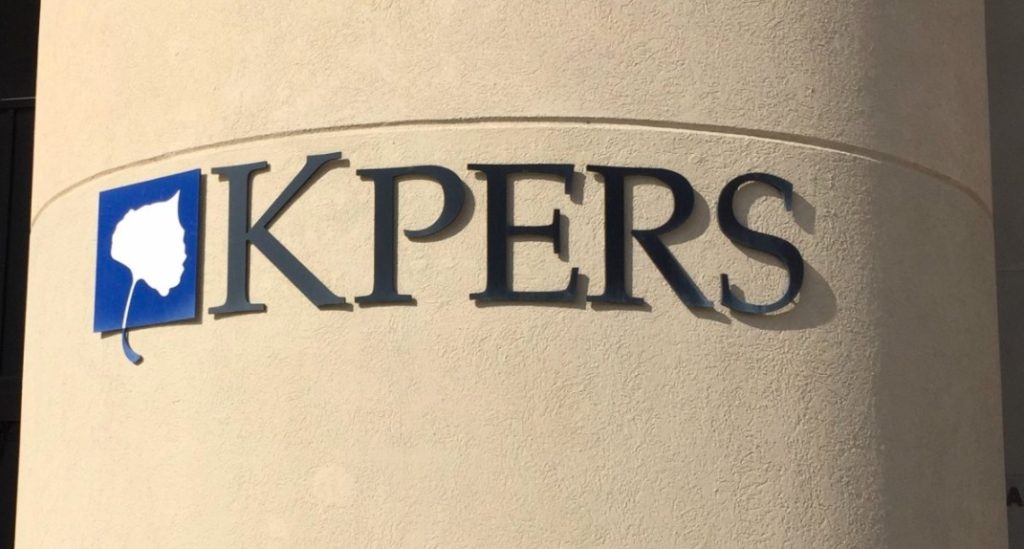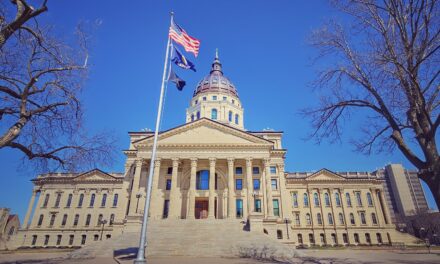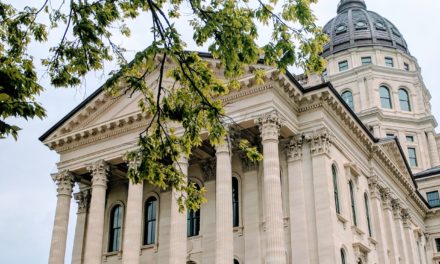For those who enjoy political theater, high drama, and vigorous debate, the show the Kansas Legislature provided this week regarding the mega voucher bill did not disappoint. Here’s the sad truth: This is not a game, and most Kansans are not fans of any of the activities mentioned above.
As the contentiousness rolled on, a few other issues important to us were eclipsed. Three of those issues are the state budget, responsible revenue policy (taxes), and KPERS.

The Budget
The Kansas Senate dedicated 4 hours of debate to the FY 2024 and FY 2025 (with certain expenditures in FY 2023 and 2026) budget on Thursday. Kansas’ fiscal year (A.K.A. FY) is from July 1 to June 30. The bill, SB 155, closely resembles the Governor’s Budget Recommendation (A.K.A. GBR) in the area of K-12 funding with two major exceptions. Amongst other expenditures, SB 155 does provide for $3.9 billion in funding for public education. This includes $2.7 billion in base state aid, $600 million in supplemental state aid, and $520 million in special education aid. But the bill does not include Governor Kelly’s recommendation for an additional $72 million in special education funding on top of the current $520 million as well as leaving out $76 million in high density at-risk funding in FY 2025.
Relatively few amendments were offered to the bill. One extremely impactful amendment that was offered and adopted was an amendment that imposed a 3.25% cut to the overall budget. This amendment passed on a vote of 17-9 with a number of senators either passing or not voting due to absence.
The bill advanced to final action which is scheduled for this Monday, March 20.
Stay tuned.
Taxes

The legislature entertained more talk about flat income tax proposals with a hearing on SB 169 on Monday. This bill, which passed the Senate last month on a vote of 22-17, creates one tax rate for all income taxpayers. Currently, the state of Kansas has 3 tax brackets with higher rates that progress as the tax filers adjusted gross income rises. The bill also effectively lowers the rate of Kansas income tax on all filers. A tax cut sounds great until you see that it is a $170 million dollar revenue loss for the state in FY 2024, a $568 million dollar loss in FY 2025, and a $574 million dollar loss in FY 2026.
All of the regular suspects are testifying that tax relief “is greatly needed” and/or we can “provide relief” without cutting any current programs. This all sounds kind of familiar: Set aside our opposition to the regressive nature of the flat tax; we’re also not as confident as the proponents that this type of cut is fiscally responsible. As a matter of fact, we know it isn’t.
As we’ve testified several times this year on these bills:
If education, infrastructure, public safety, and social services are to remain intact without cuts, which revenue source will see the shift upon passage of SB 169?
If education, infrastructure, public safety, and social services are to remain intact without a tax-shift, what programs will be cut, or even eliminated, upon passage of SB 169?
And if revenue surpluses alone are the genesis for such a change in tax policy, what happens when the surpluses shrink or become non-existent?
Expect us to testify with the same vigor next week as yet another regressive tax bill, HB 2457, has a hearing on Tuesday, March 21. As if SB 169 didn’t go far enough, HB 2457 provides tax cuts on corporations and financial institutions as well as individuals.
Stay tuned.
KPERS
Following the grim news above, we’re happy to end on a brighter note. KPERS pension issues saw a good week. At least by contemporary standards set by our legislature. The Environmental, Social and Governance bills, also known as ESG, that we reported on in previous Under The Dome editions seem to be headed in a better direction. The $3.6 billion dollar hole that certain legislators were determined to blow in the KPERS trust fund (merely for the purpose of saving the world from companies that make free market business decisions that they deem as environmentally friendly and lucrative) has been corrected. Those legislators who believe ESG decisions are bad, may still have legislation that is “memorialized” in statute but at least many of them recognized that it shouldn’t be done on the backs of the individuals who are members of our KPERS system.

Another bill, SB 256, that was “advertised” as an enhancement to KPERS Tier 3 members was basically tabled this week. This is a good thing because the bill, as drafted, was so complicated that it would have effectively amounted to a cut to the KPERS Tier 3 benefit system. To their credit, friendly legislators – from both parties – recognized this and attempted a technical fix to the issue. Unfortunately, the proposed amendment failed on a 4-4 voice vote. After the fix failed, the committee chair announced he didn’t intend to take any further action on the proposed legislation.
This isn’t all bad because the underlying bill was only a band-aid fix to a much larger problem. Sometimes a small fix gives the legislature an excuse to “kick the can down the road” and not dig into the bigger issue.
For a better understanding of this bill see our testimony at the following link:
Digital Time stamp: 10:05




